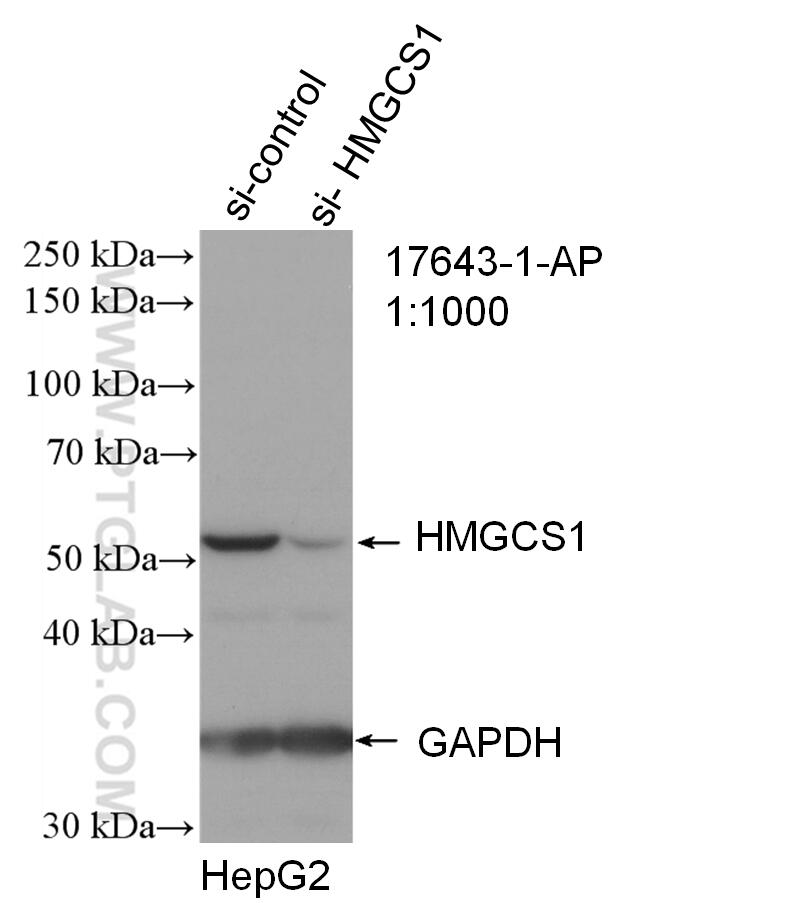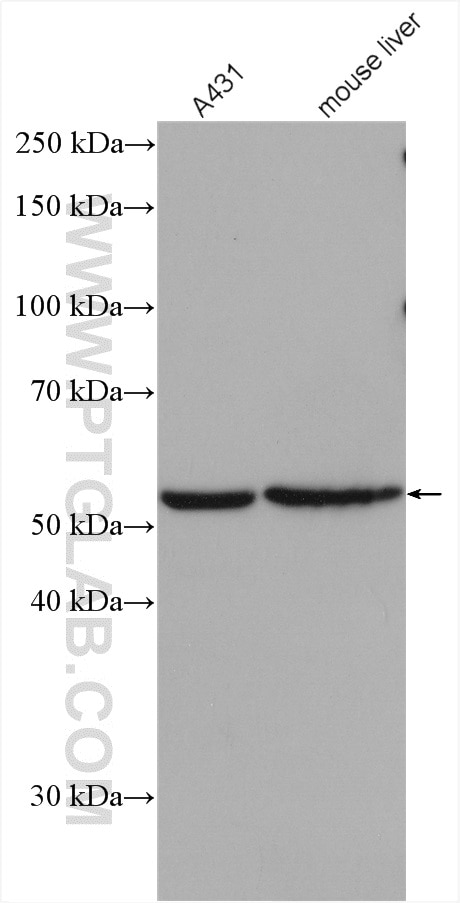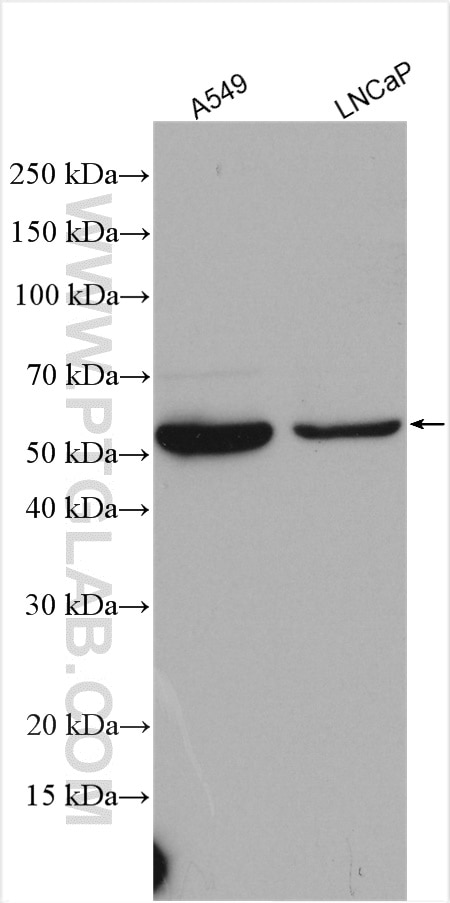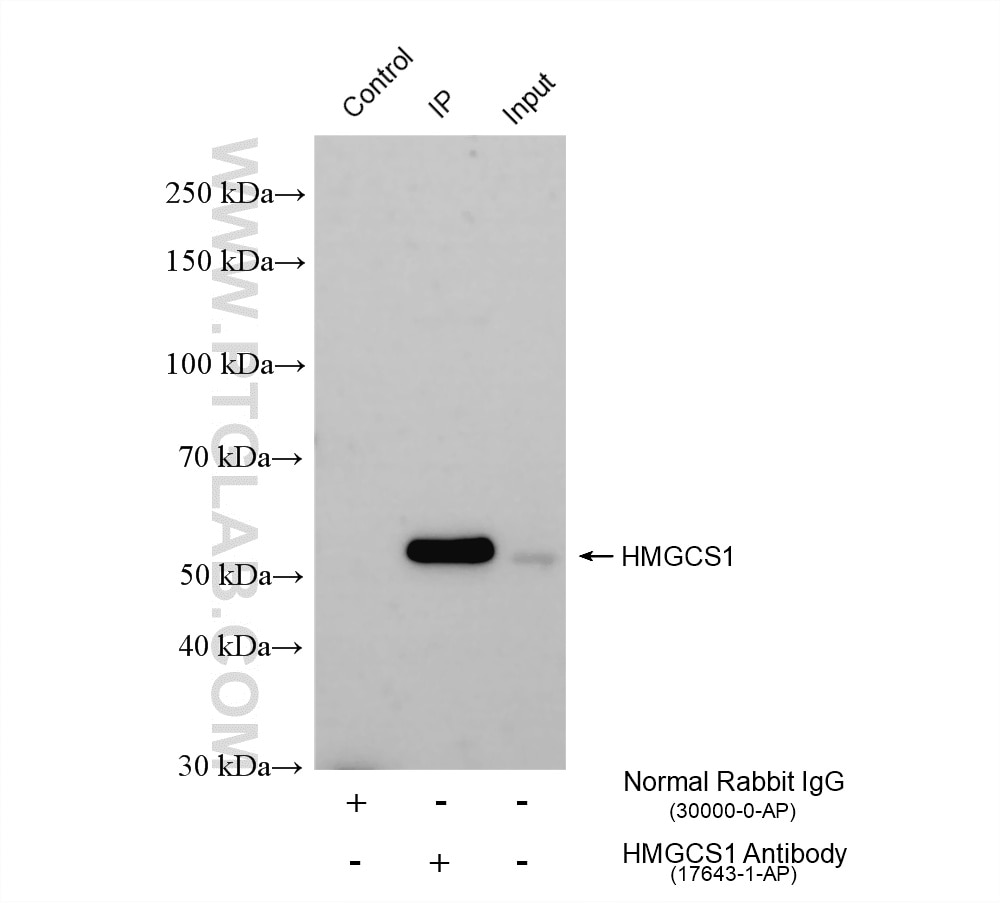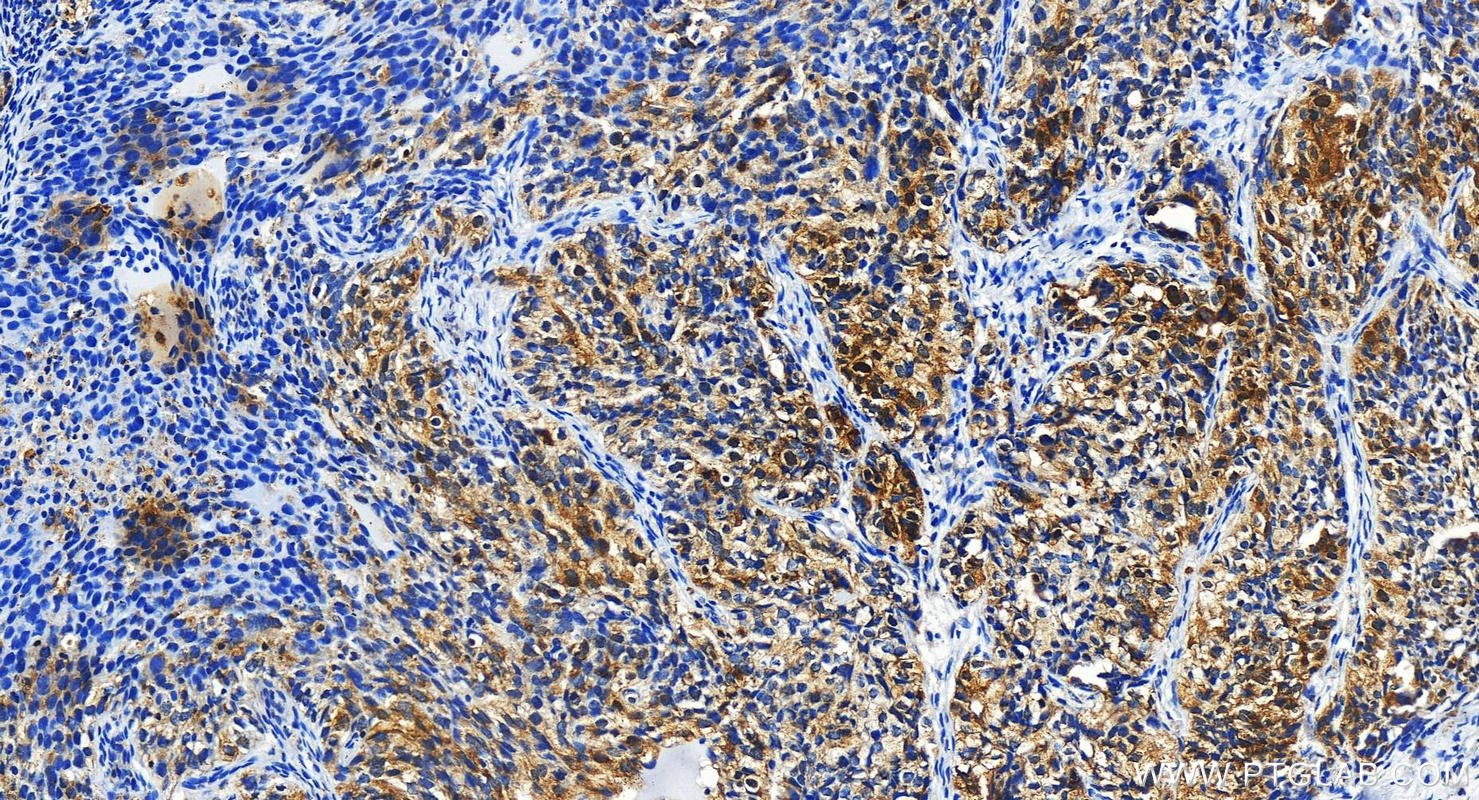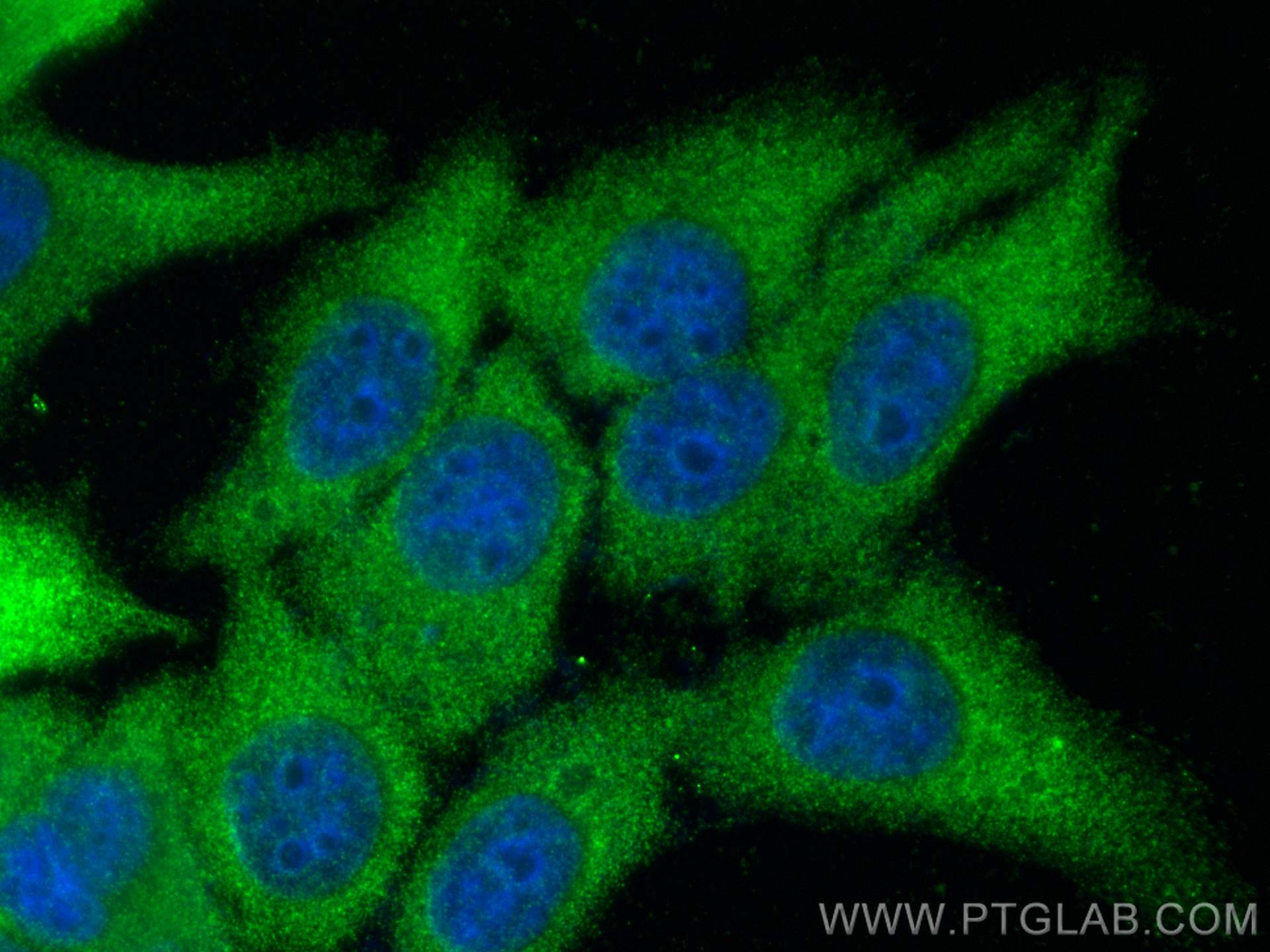Validation Data Gallery
Tested Applications
| Positive WB detected in | A431 cells, A549 cells, HepG2 cells, LNCaP cells, mouse liver tissue |
| Positive IP detected in | HepG2 cells |
| Positive IHC detected in | human ovary cancer tissue Note: suggested antigen retrieval with TE buffer pH 9.0; (*) Alternatively, antigen retrieval may be performed with citrate buffer pH 6.0 |
| Positive IF/ICC detected in | HepG2 cells |
Recommended dilution
| Application | Dilution |
|---|---|
| Western Blot (WB) | WB : 1:500-1:1000 |
| Immunoprecipitation (IP) | IP : 0.5-4.0 ug for 1.0-3.0 mg of total protein lysate |
| Immunohistochemistry (IHC) | IHC : 1:300-1:1200 |
| Immunofluorescence (IF)/ICC | IF/ICC : 1:400-1:1600 |
| It is recommended that this reagent should be titrated in each testing system to obtain optimal results. | |
| Sample-dependent, Check data in validation data gallery. | |
Published Applications
| KD/KO | See 7 publications below |
| WB | See 50 publications below |
| IHC | See 7 publications below |
| IF | See 4 publications below |
| IP | See 1 publications below |
| CoIP | See 3 publications below |
Product Information
17643-1-AP targets HMGCS1 in WB, IHC, IF/ICC, IP, CoIP, ELISA applications and shows reactivity with human, mouse, rat samples.
| Tested Reactivity | human, mouse, rat |
| Cited Reactivity | human, mouse, rat |
| Host / Isotype | Rabbit / IgG |
| Class | Polyclonal |
| Type | Antibody |
| Immunogen |
CatNo: Ag11825 Product name: Recombinant human HMGCS1 protein Source: e coli.-derived, PGEX-4T Tag: GST Domain: 171-520 aa of BC083514 Sequence: TGGVGAVALLIGPNAPLIFERGLRGTHMQHAYDFYKPDMLSEYPIVDGKLSIQCYLSALDRCYSVYCKKIHAQWQKEGNDKDFTLNDFGFMIFHSPYCKLVQKSLARMLLNDFLNDQNRDKNSIYSGLEAFGDVKLEDTYFDRDVEKAFMKASSELFSQKTKASLLVSNQNGNMYTSSVYGSLASVLAQYSPQQLAGKRIGVFSYGSGLAATLYSLKVTQDATPGSALDKITASLCDLKSRLDSRTGVAPDVFAENMKLREDTYHLVNYIPQGSIDSLFEGTWYLVRVDEKHRRTYARRPTPNDDTLDEGVGLVHSNIATEHIPSPAKKVPRLPATAAEPEAAVISNGEH 相同性解析による交差性が予測される生物種 |
| Full Name | 3-hydroxy-3-methylglutaryl-Coenzyme A synthase 1 (soluble) |
| Calculated molecular weight | 520 aa, 57 kDa |
| Observed molecular weight | 57 kDa |
| GenBank accession number | BC083514 |
| Gene Symbol | HMGCS1 |
| Gene ID (NCBI) | 3157 |
| RRID | AB_2248359 |
| Conjugate | Unconjugated |
| Form | |
| Form | Liquid |
| Purification Method | Antigen affinity purification |
| UNIPROT ID | Q01581 |
| Storage Buffer | PBS with 0.02% sodium azide and 50% glycerol{{ptg:BufferTemp}}7.3 |
| Storage Conditions | Store at -20°C. Stable for one year after shipment. Aliquoting is unnecessary for -20oC storage. |
Background Information
HMGCS1(Hydroxymethylglutaryl-CoA synthase, cytoplasmic) is also named as HMGCS and belongs to the HMG-CoA synthase family. The gene encodes a 520 amino acid protein which catalyzes the condensation of acetyl-CoA and acetoacetyl-CoA into 3-hydroxy-3-methylglutaryl CoA and participates in the mevalonate pathway but its end product is cholesterol(PMID:20346956). The human and hamster enzymes are distinguished by differential inhibition by magnesium ion(PMID:2870496).
Protocols
| Product Specific Protocols | |
|---|---|
| IF protocol for HMGCS1 antibody 17643-1-AP | Download protocol |
| IHC protocol for HMGCS1 antibody 17643-1-AP | Download protocol |
| IP protocol for HMGCS1 antibody 17643-1-AP | Download protocol |
| WB protocol for HMGCS1 antibody 17643-1-AP | Download protocol |
| Standard Protocols | |
|---|---|
| Click here to view our Standard Protocols |
Publications
| Species | Application | Title |
|---|---|---|
Cancer Cell Targeting the mevalonate pathway suppresses ARID1A-inactivated cancers by promoting pyroptosis
| ||
Nat Cancer Lymphatic endothelial-like cells promote glioblastoma stem cell growth through cytokine-driven cholesterol metabolism
| ||
Neuron Astrocytic ApoE reprograms neuronal cholesterol metabolism and histone-acetylation-mediated memory. | ||
Adv Sci (Weinh) eIF4E Enriched Extracellular Vesicles Induce Immunosuppressive Macrophages through HMGCR-Mediated Metabolic Rewiring | ||
J Cell Biol TDP-43 mediates SREBF2-regulated gene expression required for oligodendrocyte myelination. | ||
J Transl Med Glutamine-driven metabolic reprogramming promotes CAR-T cell function through mTOR-SREBP2 mediated HMGCS1 upregulation in ovarian cancer
|

